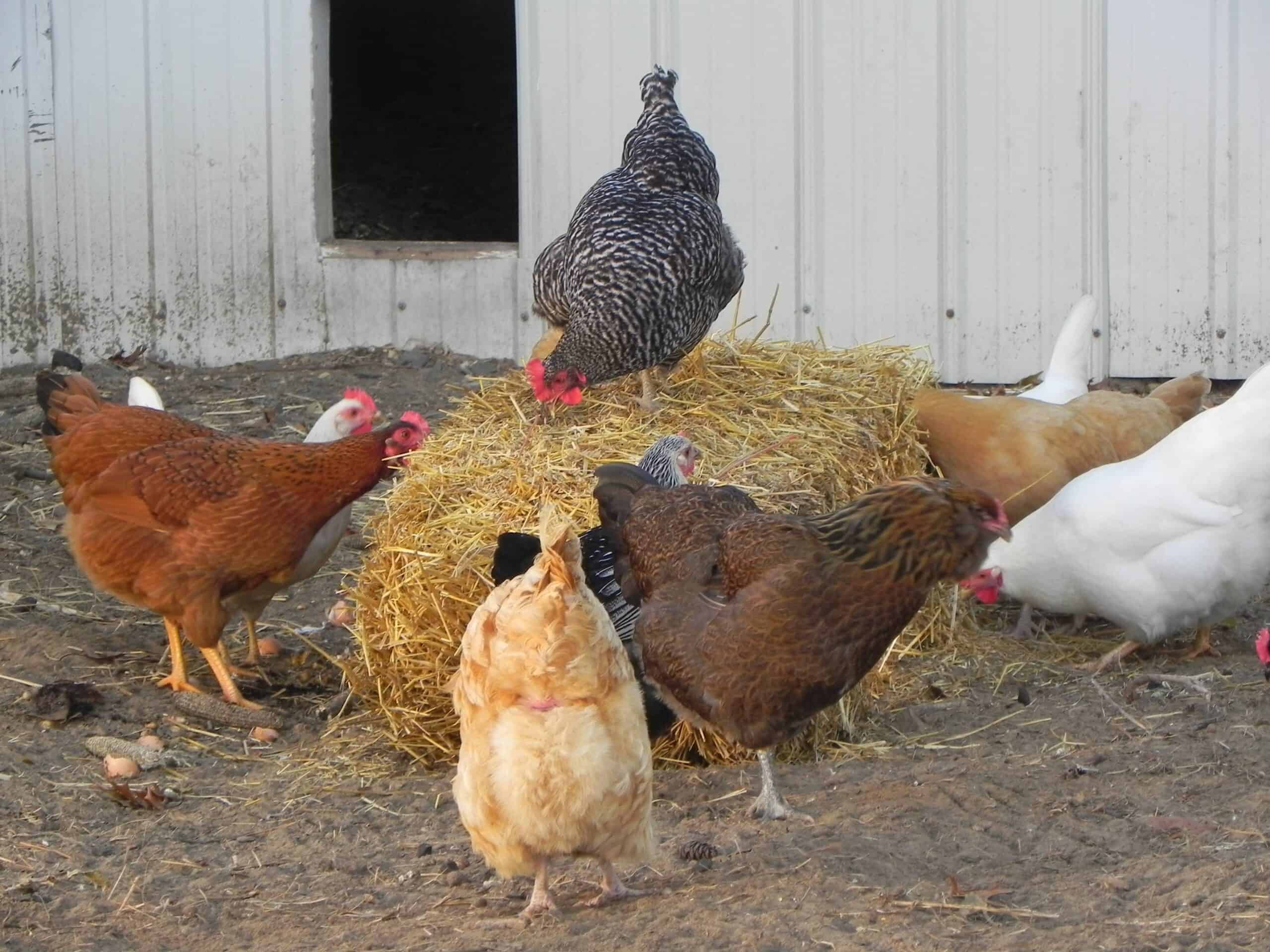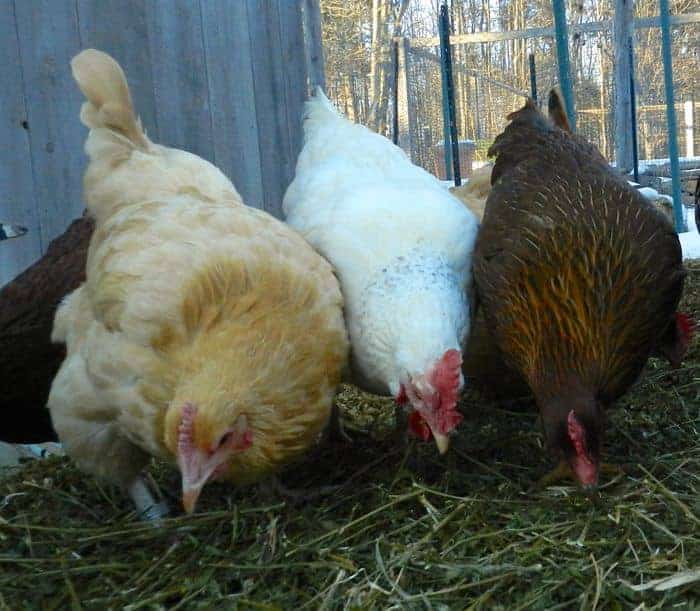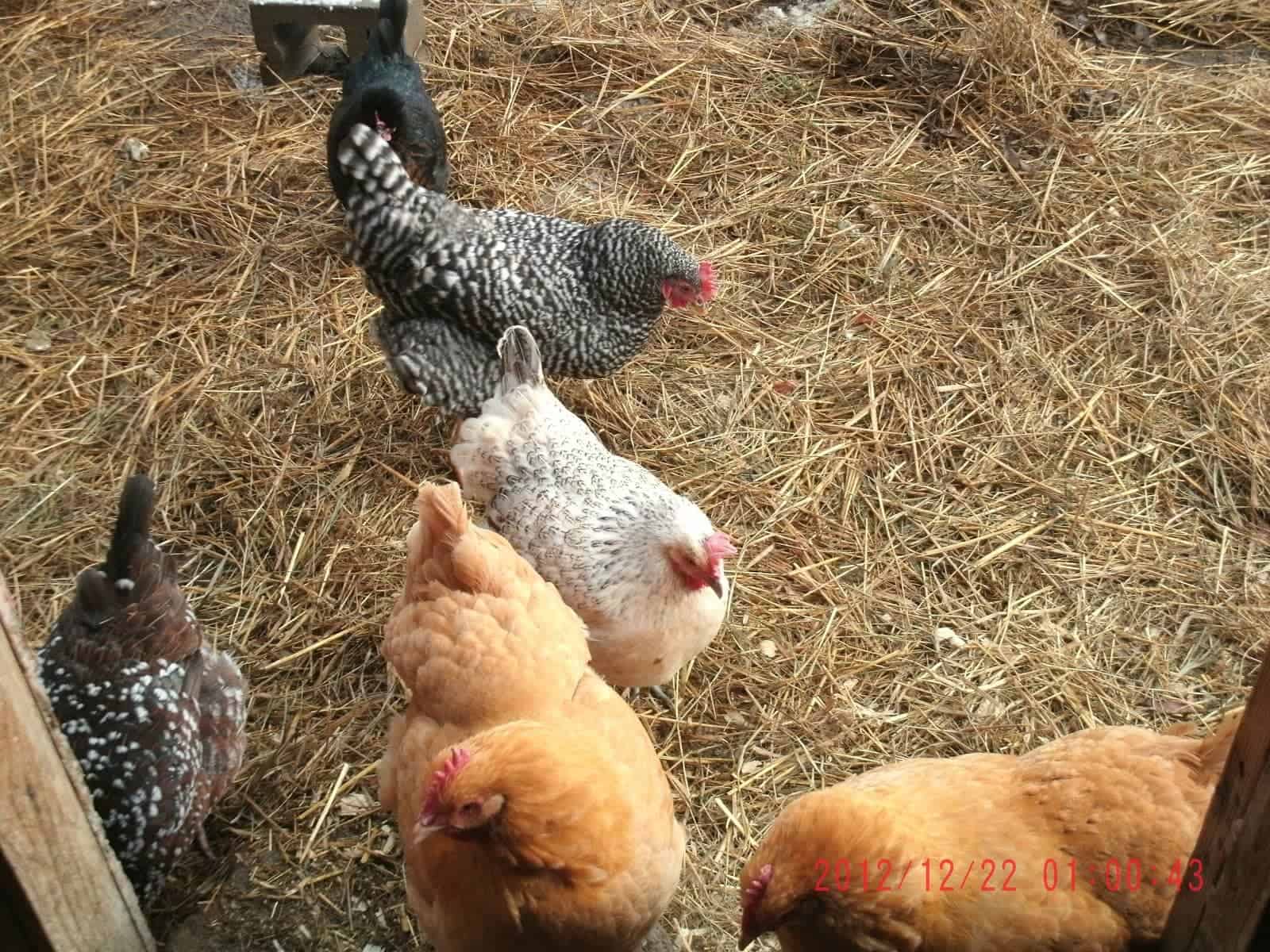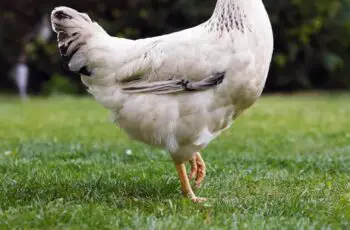While Timothy Hay is a perfect food for horses, rabbits and cattle, is it the same for chickens? People think that all hay is the same, but this simply isn’t the case. There are different types of hay, and each one has its own unique set of benefits. So can chickens eat Timothy hay?
In this post, we’ll take a look at the nutritional value of Timothy hay and whether or not it’s safe for chickens to eat. We’ll also share some tips on how to feed it to your birds. Keep reading to learn more!
The Short Answer…
Although chickens can eat many types of hay but not Timothy hay. It is simply because Timothy hay is quite a roughage and doesn’t provide any nutritional value for chickens.
However, providing some Alfalfa hay for chickens can be a good way to peck at and enjoy nibbling on. You can either put the hay in the coop or in a nearby feeder so they can access it easily. Just make sure your chickens don’t choke on any pieces of straw!
Why Timothy Hay Is Bad For Chickens? (5 Solid Reasons!)
While chickens will peck at pretty much anything, but that doesn’t mean that everything is good for them.
-
1# Can Cause Digestive Problems
Timothy hay, for example, is a type of grass that is commonly fed to horses and other grazing animals. While chickens may enjoy nibbling on timothy hay, it is not a good source of nutrition for them. Timothy hay is low in protein and very high in fiber, which is good for large critters and can cause digestive problems in chickens.
-
2# Little Nutritional Value
While it is high in fiber and low in calories, Timothy hay is relatively low in protein and other essential nutrients. it provides little nutritional value for chickens and can actually lead to health problems if it forms the basis of their diet.
Chickens require a diet that is high in protein in order to maintain their energy levels and support their growth. If they consume too much Timothy hay, they may develop nutritional deficiencies that can adversely affect their health.

-
3# Lead To Problems
Timothy hay is very high in fiber, which can cause digestive problems in chickens. The hay contains little protein or fat, which are essential nutrients for chickens.
The high content of indigestible fiber in Timothy hay can lead to gastrointestinal problems, such as constipation and crop impaction. For these reasons, it is important to limit the amount of Timothy hay that chickens consume and to supplement their diet with other more nutrient-rich foods.
-
4# Can Get Caught in Throats
The long strands of hay can get caught in a chicken’s throat or wrap around its intestines, causing serious health problems. For these reasons, it’s best to avoid giving timothy hay to chickens. There are plenty of other food and hays that are better suited to their nutritional needs.
-
#5 High In Carbohydrate
While timothy hay does contain some nutrients that chickens need, it is also high in carbohydrates and low in protein. This imbalance can lead to health problems in chickens, such as obesity and liver disease. Not only that but the long fibers in timothy hay can cause gastrointestinal blockages and digestive issues. These are compounds and makes timothy hay incorrect option which is why chickens cannot eat timothy hay.
What Is The Best Hay For Chickens?
When it comes to feeding chickens, hay is an important staple. Not only does it provide essential nutrients, but it also helps keep chickens occupied and healthy.
-
Alfalfa Hay
While there are many types of hay, alfalfa is the best option for chickens. Alfalfa is high in protein and calcium, two essential nutrients for chickens. The small size of alfalfa leaves makes it easy for chickens to eat. However, alfalfa can be expensive, so many chicken owners mix it with other types of hay, such as Timothy hay or Orchard grass. But, Timothy hay isn’t a good option. That’s why chickens cannot eat timothy hay.
Finally, make sure to include a few handfuls inside your chicken’s small run to help keep them healthy and happy. When choosing hay for chickens, always go for quality over quantity.
Can You Feed Timothy Hay To Chickens?
As timothy hay is a good choice for livestock that need to maintain a healthy digestive system. However, timothy hay is not great for chickens and there are better foods than timothy hay.
In Small Amounts Mixed with Other Hay
Good hays like alfalfa hay are expensive and not affordable if you have a relatively large chicken coop. In this case, if you don’t afford the cost of quality hays, you can mix it with other hays like oats hay, Triticale Hay or Timothy hay. The Timothy hay should be the last option and relatively in small amounts. Whenever possible use oats hay or triticale hay with alfalfa hay. It will become affordable and provide a better quality than just poor.
Which Kinds of Hay Can Chickens Eat?
Hay is an essential part of a chicken’s diet, providing essential nutrients and roughage. There are many different types of hay available, but not all of them are suitable for chickens. Although chickens are nimble and feed on any kind of hay, its better to provide the proper and suitable kind of hay.
The best kinds of hay for chickens are those that are high in fiber and low in sugar.

-
Alfalfa Hay
Alfalfa hay is a good option. Alfalfa hay is rich in vitamins and minerals, and contains a high level of protein. This makes it an excellent option for chicken feed. Importantly, alfalfa hay is highly digestible and helps to keep the chicken’s digestive system healthy. It is no surprise that alfalfa hay is often recommended by veterinarians for chickens.
-
Oat Hay
Oat hay is also a good option, as it is low in sugar and provides a good source of fiber. It is high in fiber and helps to promote good gut health. Also, oat hay is a good source of vitamins and minerals, and it can help chickens to stay warm in the winter months. While oat hay is generally considered to be a healthy food for chickens, it is important to note that it should not be the only thing that they eat. Chickens need a balanced diet in order to stay healthy, and oat hay should only be given as a supplement like cracked corn.
-
Triticale Hay
While triticale is not as widely available as other types of hay, it can be a good option for chickens. Triticale is a hybrid of wheat and rye, and it is high in fiber and proteins. This makes it an ideal food for chickens, who need plenty of roughage to stay healthy. The triticale hay is less likely to cause digestive problems than other types of hay. Chickens can also benefit from the higher protein content, which helps them to maintain a healthy weight. In the end, triticale hay can be a good option for any chicken owner looking for a nutritious and easily digestible food source.

How Much Hay Should You Feed Chickens?
When it comes to feeding chickens, hay is often overfed like grain and pellets. While instead, 85-90% of chickens diet should be different food mostly fruits & vegetables, and only 10 – 15% should be hay.
Generally, a good rule of thumb is to offer a handful of hay per chicken every two days.
This will help to ensure that your chickens are getting enough fiber to maintain their digestive health. Hay can provide important vitamins and minerals, such as calcium and vitamin A. So don’t be afraid to give your chickens a little hay each day – it just might be the key to keeping them healthy and happy!
What Are The Risks of Feeding Hay To Chickens?
While it might seem like harmless fun, there are actually some risks associated with feeding hay to chickens.
-
Cause Respiratory Problems
The biggest concern is that hay can harbour mold spores, which can cause respiratory problems in chickens. Hay can also harbor bacteria and other pathogens, which can make chickens sick if they eat it. Hay can also contain dust and other particulates that can irritate a chicken’s respiratory system.
-
Make Chickens Sick
Another risk is that hay can contain harmful bacteria, which can make chickens sick.
-
Poor Nutrition
In addition, hay is not a very nutritious food for chickens and can lead to malnutrition (poor nutrition) if they eat too much of hay like whole corn. Finally, some types of hay may contain toxic plants or chemicals, which can be dangerous for chickens to consume. Therefore, it is important to be aware of the risks before feeding hay to chickens.
If you must feed it to them, be sure to purchase hay from a reputable source and inspect it carefully before giving it to your feathered friends.

What To Avoid When Feeding Hay To Chickens?
No doubt, chickens love hay, and it can be a great way to give them some extra nutrients. However, when feeding hay to chickens, there are a few things to avoid.
-
Avoid Dusty & Moldy Hay
First, avoid moldy or dusty hay which can cause respiratory problems.
-
Avoid Giving Too Much Hay
Second, avoid giving them too much hay, as it can fill them up and they won’t eat their regular food.
-
Avoid Giving Wet or Damp Hay
Third, avoid giving them wet or damp hay, as this can lead to crop problems.
-
Avoid Giving Treated Hay
Finally, avoid giving them treated hay, as the chemicals can be harmful. Hay that has been treated with pesticides or herbicides should also be avoided. A little bit of good-quality hay is better than a lot of poor-quality hay.
-
Avoid Feeding only Hay As their Main Food (Feed Hay with other Foods)
When feeding hay to chickens, make sure to offer a variety of other foods as well, such as vegetables, fruits, and insects. This will help to ensure that they are getting all the nutrients they need.
If you follow these simple guidelines, you’ll be sure to give your chickens the best possible diet.


